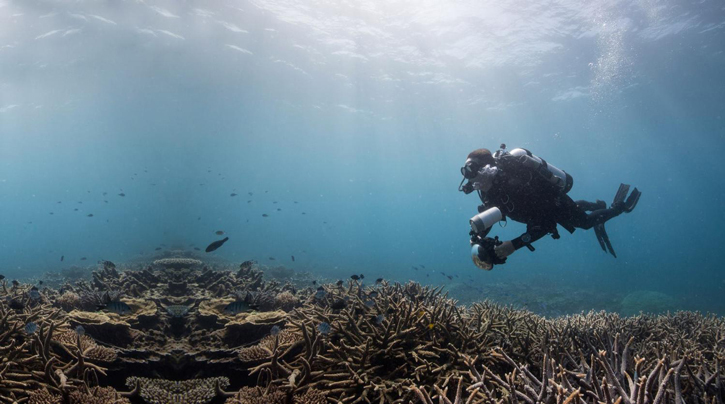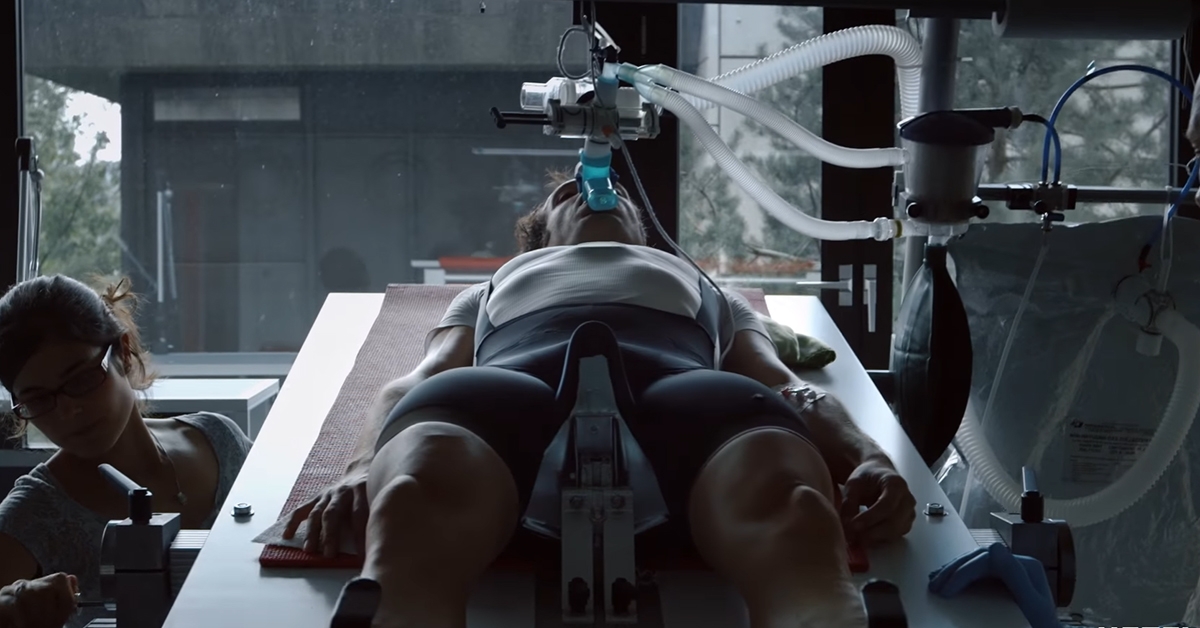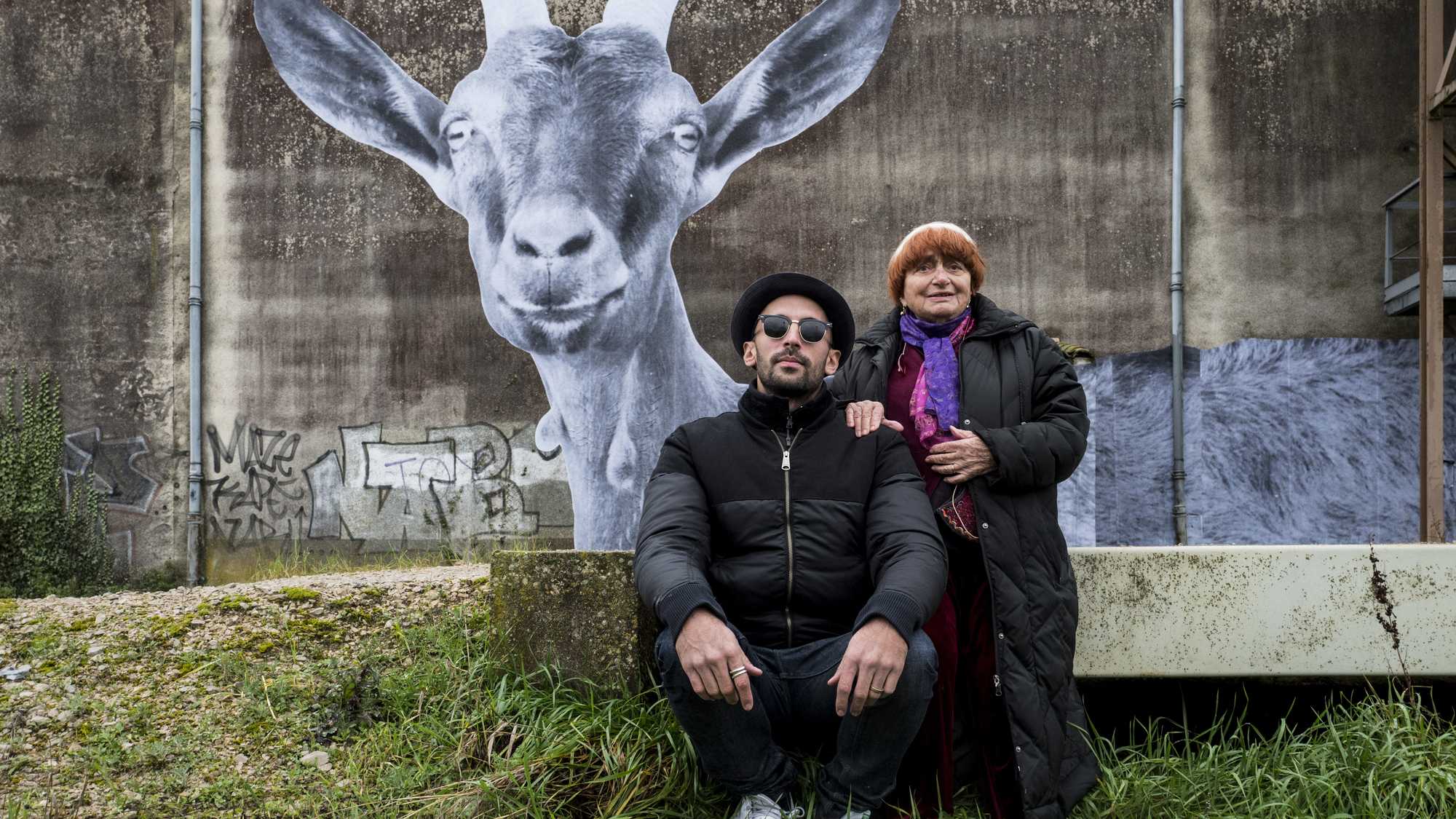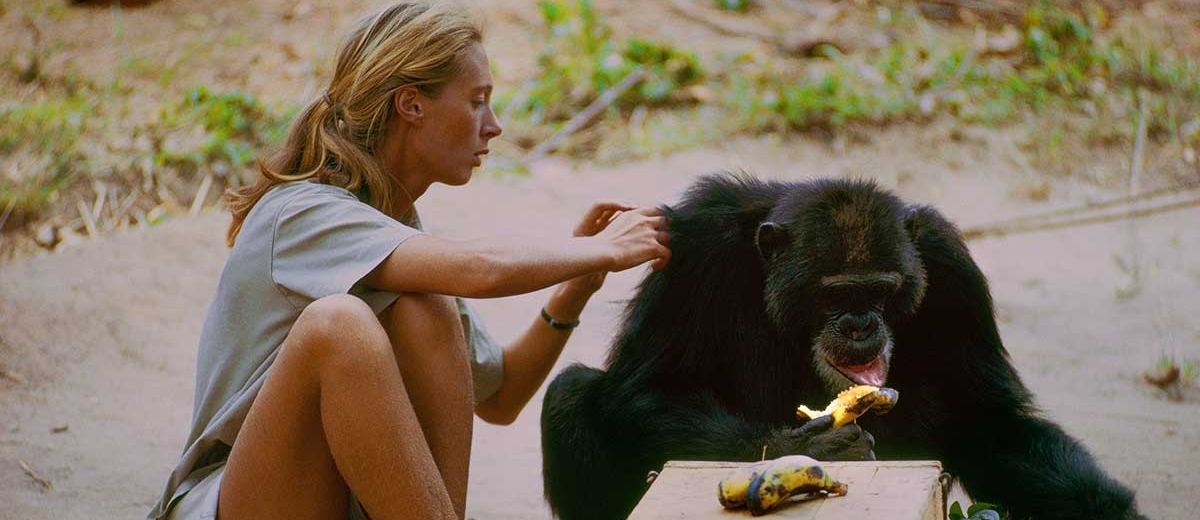5. Chasing Coral

Coral bleaching is one of the most severe problems the world is facing nowadays, and after watching “Chasing Coral” you will know why. Out of all the documentaries released last year, none of them treats a matter as serious as this one does.
From 2014 to 2016, the Great Barrier Reef has suffered the longest global bleaching events ever recorded. Coral bleaching is the phenomenon where corals turn completely white and die after expelling the algae that live in their tissues. This is caused by the warmer water temperatures, which are in turn caused by global warming.
In an engaging and very informative manner, “Chasing Coral” manages to spread awareness about climate change, the importance of coral reefs, and the huge impact a change of two degrees Celsius can have on nature. Despite being a pretty formulaic documentary, “Chasing Coral” is a must-see for its important message.
4. Mommy Dead and Dearest

If there is a 2017 film that really needs more attention, HBO’s documentary about the murder of Dee Dee Blanchard is the one.
Gypsy Rose Blanchard’s life story sounds like a good plot for a season of “True Detective.” Unfortunately, all of it is true. Back in June 2015, she was accused of conspiring the killing of her own mother and sentenced to 10 years in prison. Gypsy Rose, who was 23 years old at the time, was convinced by her mother that she suffered from leukemia, asthma and muscular dystrophy, among several other diseases.
For years, her neighbors saw the girl confined to a wheelchair and were impressed by Dee Dee’s struggle to keep her daughter alive. In reality, the only thing Gypsy Rose suffered from was Munchausen Syndrome by proxy, induced by her own mother since she was a small child.
Unlike many TV productions about similar subjects, “Mommy Dead and Dearest” features interviews with the real persons implicated in this case and doesn’t try to replicate the events or make any further assumptions. This makes for a fascinating yet disquieting film.
3. Icarus

“Icarus” won the Academy Award for Best Documentary at this year’s Oscars and, while some might not have liked it better than “Faces Places,” which was the second favorite, it is still a very well-made documentary. The scandal surrounding Russia’s state-sponsored doping program is not a topic of interest for most people, but “Icarus” makes the best out of its subject matter and the result is a thrilling, remarkable film.
The film follows director/writer/producer Bryan Fogel’s investigation of illegal world doping in sports and his encounters with Grigory Rodchenkov, the (now former) director of the Russian national anti-doping agency. In many ways, the film is paradoxical. You see the two men discussing on Skype; Fogel’s dog walks into the camera, Rodchenkov laughs, and all in all, it seems like an enjoyable circumstance.
At the same time, you hear about people getting killed; Rodchenkov became a fugitive after he uncovered the truth about the corrupt Russian anti-doping system, and the sports world (at least the Russian one) starts looking like a huge lie.
Is Rodchenkov a hero or a bad guy? The film tends toward the first option, blaming the Russian leadership more than the lab people who obeyed it.
2. Faces Places

French New Wave pioneer Agnès Varda was supposed to retire after her 2008 film “The Beaches of Agnès.” Fortunately, the 89-year-old director made a return last year with her Academy Award-nominated documentary “Faces Places.”
The film follows Varda and French photographer JR as they travel through France’s villages, decorating building exteriors, walls or containers with portraits of the people they come across.
“Faces Places” can be described as a feel-good film with a touch of melancholy. Agnes and JR’s road trip is filled with funny moments, insightful conversations and, despite the 50-year age gap between them, they share a similar artistic vision. The art they create during their journey is stunning, a real visual treat and an ode to humanity.
1. Jane

National Geographic’s documentary about famous primatologist and anthropologist Jane Goodall didn’t get too much recognition. It wasn’t even nominated for a Best Documentary Academy Award, despite being good enough to be the winner.
The film is an intimate biography of Goodall and presents never-before-seen footage from National Geographic archives that date back to the 60s, most of it concerning Goodall’s work with chimpanzees in Africa. Interlaced with the old footage, the now 83-year-old Goodall answers to an interviewer’s questions and recalls her life.
“Jane” is an inspiring, personal film which will be greatly enjoyed by nature lovers and not only. The amazing Philip Glass score shouldn’t be neglected either. This is truly one of 2017’s hidden gems.